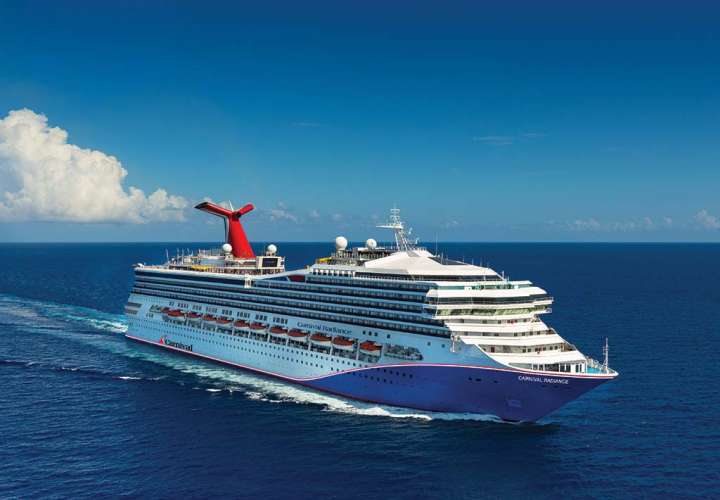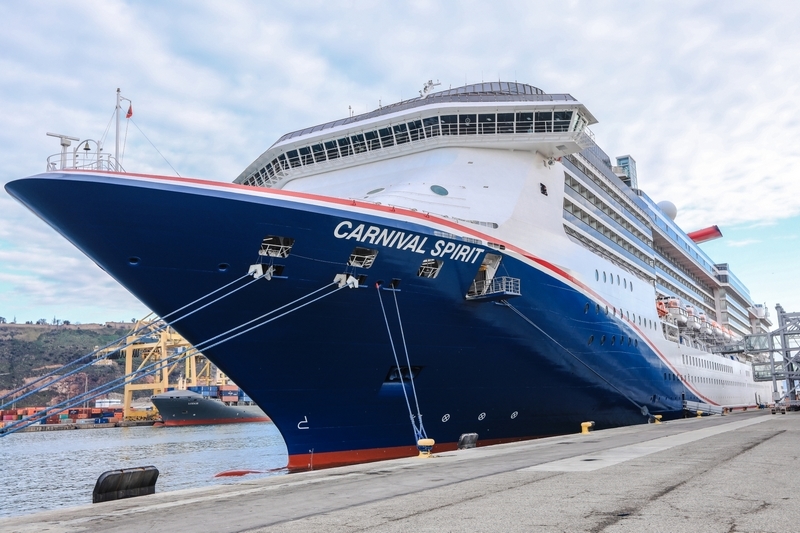Carnival Cruise Lines Takes Decisive Action To Restore Onboard Order Enforcing Strict New Policies On Panama And Other High-Demand Routes

Carnival Cruise Lines is taking decisive action to redefine the passenger experience on Panama and other popular destinations with the introduction of bold new policies aimed at curbing disruptive behavior. These groundbreaking regulations, which include bans on certain music, marijuana, and other disturbances, will significantly impact cruises to Panama and other sought-after locations. By enforcing these strict rules, Carnival is focused on creating a more respectful and peaceful onboard atmosphere, ensuring that passengers can enjoy their voyages without disruptions, especially on high-demand routes like Panama.

Carnival Cruise Line has recently introduced a series of new policies aimed at curbing disruptive behavior on their ships, marking a significant shift in the company’s approach to onboard conduct. These changes come in response to increasing incidents of unruly behavior among passengers, which have, at times, tarnished the brand’s reputation. While Carnival is known for catering to a broad and diverse audience, these new regulations indicate a move towards a more controlled and respectful cruising experience.
One of the key measures announced by Carnival is an expansion of its zero-tolerance policy regarding marijuana use, which has long been a source of controversy aboard its ships. In addition to this, Carnival is now banning the playing of hip-hop and rap music, the use of Bluetooth speakers, and dancing in public areas. These decisions reflect the cruise line’s attempt to manage the behavior of passengers and to create a more comfortable and family-friendly environment. Carnival seems to have identified these activities as contributors to the disruptive incidents that have plagued its cruises in recent years.
Carnival’s decision to target these specific behaviors comes as the cruise line grapples with its reputation as the “budget” brand in its portfolio. While it offers affordable vacation options for a wide demographic, this has also meant attracting passengers who may not always exhibit the most refined behavior. Carnival’s target audience tends to include younger, budget-conscious travelers who are often more interested in partying and socializing than in luxury or relaxation. This demographic, while contributing to the popularity of Carnival’s cruises, has also led to challenges when it comes to managing disruptive actions.
Interestingly, Carnival has also introduced a new age restriction that has raised many eyebrows. Under the new policy, guests wishing to bring a minor on board must now be at least 25 years old. This regulation is notably strict when compared to the U.S. legal age of adulthood, which is 21. Additionally, individuals can join the military or legally sign contracts at an earlier age, so the new policy appears to be an outlier in its attempt to regulate who can bring children aboard Carnival ships. While some argue that the move may help reduce disturbances, others see it as an overregulation that unfairly limits access to cruises for younger families.
The age requirement could be viewed as a response to a perceived increase in disruptions among younger passengers, but it may also alienate a key demographic: parents in their 20s and early 30s who may not fit the new criteria but are still responsible travelers. This change raises questions about whether such a broad policy is the right solution to addressing specific issues, as it may be overly restrictive for many potential guests who do not engage in disruptive behavior.
Despite the introduction of these new rules, many passengers have expressed support for Carnival’s attempts to crack down on rude or disruptive behavior, particularly with regard to pool chair hoarding and other impolite actions. Some travelers have suggested that these behaviors, along with excessive drinking and public disturbances, have become a hallmark of the Carnival experience. The company’s stricter enforcement of its rules, including the removal of disruptive guests and the potential for permanent bans across all Carnival brands, is seen by some as a necessary step to restore the reputation of the cruise line.
However, Carnival is not alone in facing these challenges. Other major cruise lines, including Royal Caribbean, Celebrity, Holland America, and Princess, have also experienced similar issues with inconsiderate guests. Whether it’s hoarding pool chairs, loud music, or general unruliness, the problem is not unique to Carnival, and the company’s new measures may spark a broader discussion about enforcing rules across the entire cruise industry. Stronger enforcement of policies governing behavior could benefit all passengers, creating a more enjoyable and peaceful environment on board.
In the wake of these changes, Carnival is clearly working to rebrand itself and improve its image. While the cruise line is known for offering budget-friendly vacations, it is now seeking to shift away from the reputation of attracting rowdy and disruptive passengers. The company’s actions signal a commitment to making its ships more appealing to families and travelers who are looking for a more refined cruising experience. However, it remains to be seen whether these measures will effectively address the issues at the heart of Carnival’s bad reputation or whether they will alienate certain customer groups in the process.
For many travelers, the key to enjoying a Carnival cruise may lie in the destination rather than the atmosphere onboard. While some cruise lines are better known for their relaxed and upscale environments, Carnival may be a better fit for destinations where guests are more focused on exploring new locations and enjoying scenic views rather than indulging in party culture. Locations such as the Panama Canal, Alaska, and Asia could offer the kind of itinerary that appeals to those looking for a more subdued cruise experience. These types of cruises would attract passengers who are more interested in the journey itself and the opportunities for adventure, rather than the more boisterous activities that Carnival has traditionally been associated with.
Carnival Cruise Lines is enforcing bold new policies to curb disruptive behavior, aiming to transform the onboard experience on Panama and other high-demand routes. These game-changing regulations are set to create a more respectful and peaceful environment for all passengers. Ultimately, Carnival’s recent policy changes are a sign that the cruise line is trying to redefine its brand and create a more enjoyable experience for all passengers. Whether these new regulations will successfully shift the company’s image remains to be seen. However, for those who appreciate the affordability that Carnival offers but prefer a more tranquil onboard environment, exploring certain destinations may provide a balance of both. While Carnival continues to serve a wide range of travelers, it is clear that the company is striving to cater to an audience that values respect, civility, and a more refined cruise experience.





